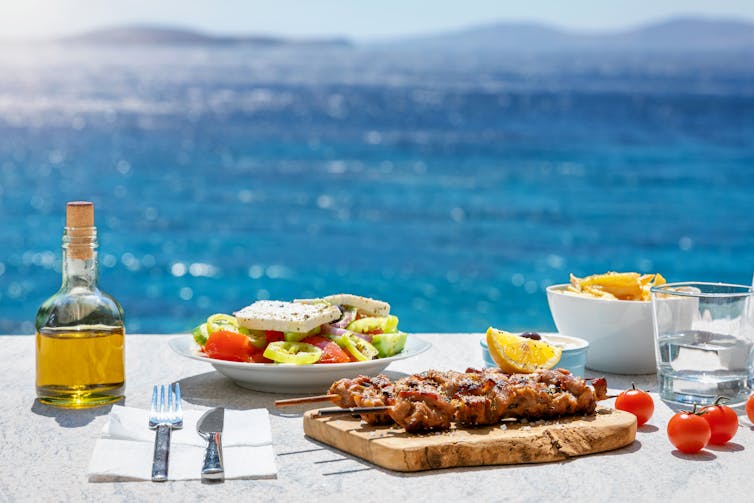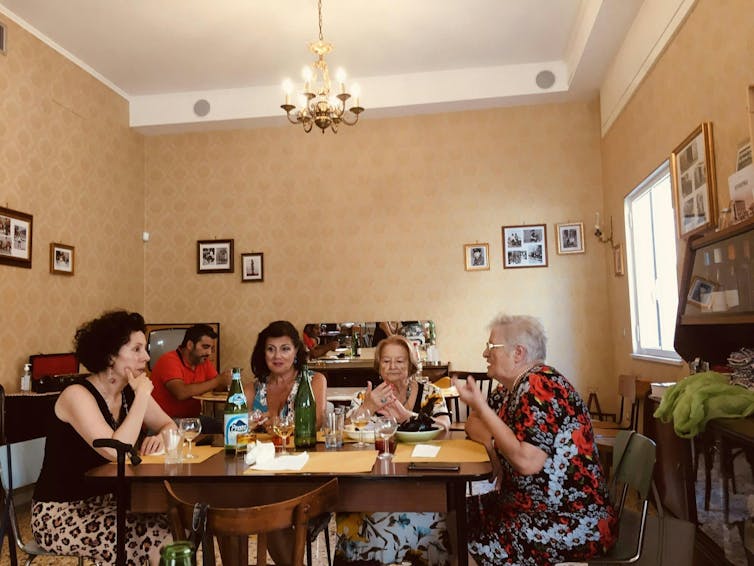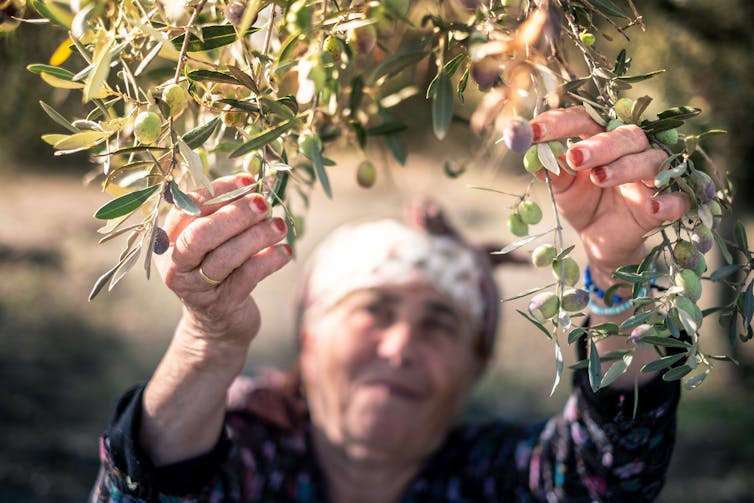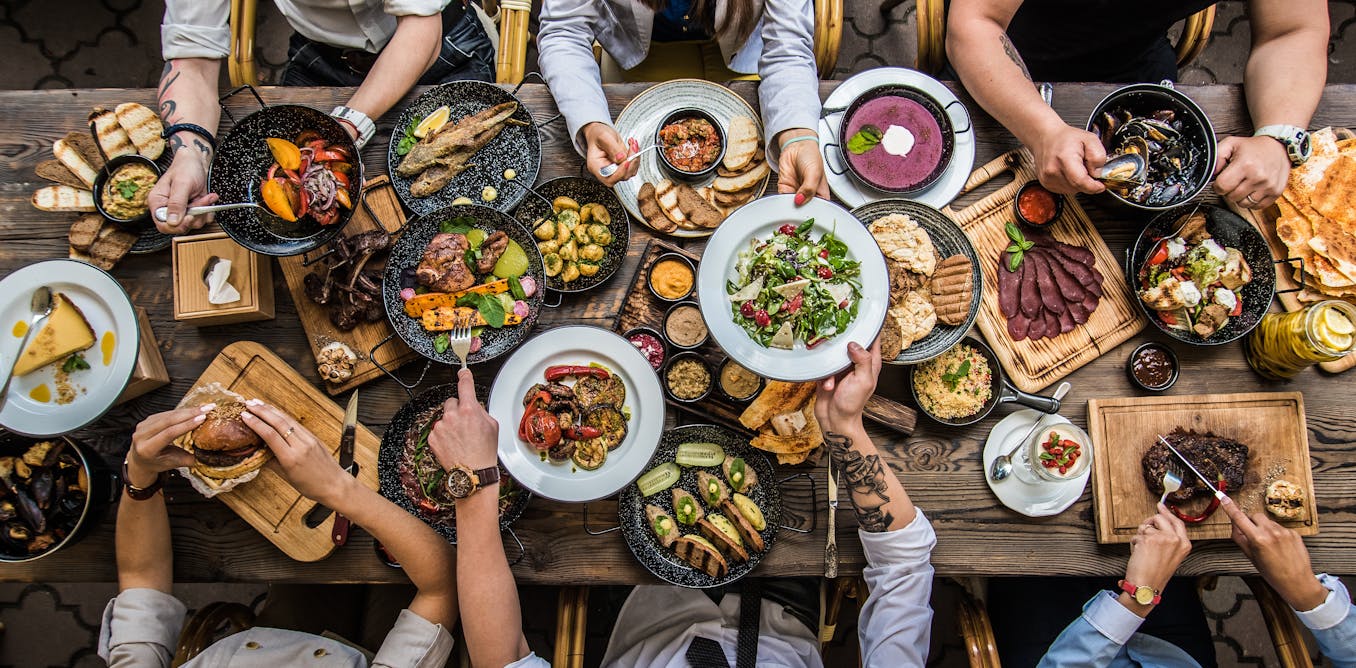The promise of a long, healthy and happy life with an active, community-oriented lifestyle under warm, sunny skies could be within your grasp. In fact, it could be on your table.
The Mediterranean diet has been on the UNESCO Intangible Cultural Heritage List since 2010. The diet not only has guaranteed cultural value, but is also a powerful strategic tool for promoting foods such as olive oil.
The Mediterranean diet is often praised as being beneficial to health and was first described in a book about Crete in 1953. At the time, people were amazed at the low incidence of cardiovascular disease among the inhabitants of this Greek island compared to northern Europeans.
This olive oil-based diet promotes the consumption of fresh foods, seasonal fruits and vegetables, and whole grains, among other things. It embodies the essence of the Mediterranean lifestyle according to the UNESCO definition:
The Mediterranean diet encompasses a set of skills, knowledge, rituals, symbols and traditions related to cultivation, harvesting, fishing, animal husbandry, conservation, processing, cooking and especially the sharing and consumption of food. Eating together is the basis of the cultural identity and continuity of communities throughout the Mediterranean. It is a moment of social exchange and communication, a confirmation and renewal of the identity of families, groups or communities.

(Shutterstock)
But beyond its impact on our health, what does the Mediterranean diet say about us as a society? Could it be a symptom of something?
As a postdoctoral fellow at the École des sciences de la gestion of UQAM, my research is at the interface between heritage and tourism studies, nutrition and mental health.
In 2021, I conducted fieldwork in Cilento (Italy), Soria (Spain) and Marseille (France), where I investigated the inhabitants’ attachment to the Mediterranean diet, listening to their stories and trying to understand the local and social dynamics underlying the concept of the Mediterranean diet.
Reflection of a deep social crisis
The concept of the Mediterranean diet describes a lifestyle that strengthens social relationships and is good for your health. It sounds simple and logical.
However, the society in which we live makes meeting these basic needs a more complex task. The health and social aspects of the Mediterranean diet are considered highly desirable, as they represent a balance that is lacking in globalized societies.
Claude Fischler, sociologist of human nutrition, describes the multidimensional crisis of the food system in modern societies.
In his opinion, a psychopathology of everyday eating is underway. This is characterized by “appetite disorders, bulimia, anxious or compulsive snacking, etc.” Just think of the consumption of highly processed foods or ready-made and frozen meals that we eat at our leisure in the evening in front of the television or during our lunch break in front of the computer.

(Provided by the author)
In this psychopathological perspective on food, which also reflects a social crisis, mechanisms of cultural (and in this case food) reactivation emerge. The trend towards the Mediterranean diet is a reflection of this social crisis, because it is the opposite of our way of life.
With its inclusion in the UNESCO list, the Mediterranean diet has become a prestigious “monument” of Mediterranean cuisine.
This food culture was elevated to myth and made part of our heritage after undergoing an irreversible process of erosion of food production and consumption systems in the Mediterranean.
Gastronativism: Politics on the plate
The food sector is one of the best places to express the fears and worries of modern life.
Fabio Parasecoli, a researcher in the field of food science, describes the fears caused by globalization as gastronativism: “the ideological instrumentalization of food in politics to promote ideas about who belongs to a community (however defined) and who does not.”
Gastronativism is thus a political tool that provides “a sense of rootedness, comfort and security” in the face of perceived collapse (climate change, wars, pandemics, globalization).
The Mediterranean diet is part of this gastronomic approach and represents a sustainable lifestyle.
Different meanings of the Mediterranean diet
We often hear about the Mediterranean diet from institutions and scientists. What we don’t often hear, however, are the views of the communities that practice this lifestyle.
The aim of my fieldwork in 2021 was to understand the different ways in which the Mediterranean diet is defined, described, understood and lived depending on the community.

(Shutterstock)
In Cilento, the Mediterranean diet is synonymous with “lifestyle”, part of the local identity and a reference to the wider socio-cultural area (“our lifestyle”, say the locals).
In Soria it embodies a “nutritional model” and in the field of health: the adjectives most used to describe it are “healthy”, “beneficial” and “health conscious”.
In Marseille, the term “diet” conjures up images of fasting, deprivation and abstinence, while the term “Mediterranean” refers to organic, seasonal and healthy food. The reference here is more to the food industry.
A socio-cultural seismograph
Whether understood as a nutritional model, a way of life or an example of intangible heritage, the Mediterranean diet represents a way out of a system (social, nutritional, economic, ecological) that is in crisis and is constantly looking for points of reference.
Seismographs are instruments that record and measure earthquakes. Like a “sociocultural seismograph”, the Mediterranean diet allows us to capture the vibrations, the changes taking place in today’s society that cultural (and dietary) practices must cope with.




